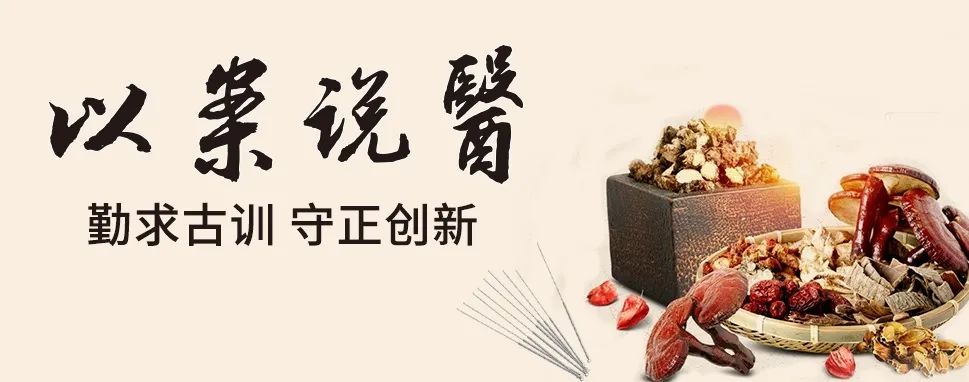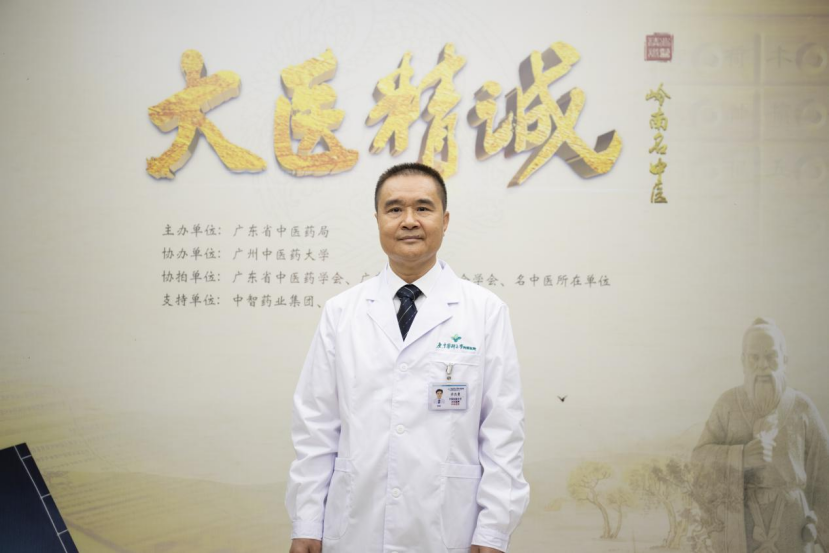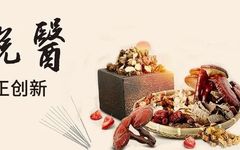

▲Hong Jiefei, Chief TCM Physician, renowned TCM expert in Guangdong Province, and academic mentor for national TCM experts. With nearly 40 years of clinical experience, he specializes in the treatment and research of common, frequently occurring, and difficult diseases using TCM, particularly skilled in treating spleen and stomach disorders, autonomic nervous dysfunction, hepatitis, cervical spondylosis, and lumbar disc herniation.
Case studies are records of clinical practice in TCM, reflecting the specific application of principles, methods, formulas, and medicines during diagnosis and treatment, showcasing the thought process of physicians in treating diseases. The case studies of renowned practitioners throughout history are treasures in the TCM repository. We introduce the column “Case Studies in TCM” to inherit the essence and inspire our peers for mutual progress.
Basic Information
Xiao, male, 78 years old, date of consultation: March 14, 2022.One month prior, he experienced dizziness and fell, leading to unsteadiness while standing. There was no vomiting or consciousness disturbance. He was hospitalized at a local hospital and diagnosed with thalamic hemorrhage. He sought TCM treatment at our clinic.Initial DiagnosisAt the time of diagnosis:Unsteady standing, difficulty walking, impaired speech, prone to choking while drinking and eating, occasional fatigue, normal appetite, average sleep, constipation, normal urination, pale red tongue, white coating, thin and wiry pulse.【Diagnosis and Treatment】TCM Diagnosis:Stroke (Zhong Jingluo).Western Diagnosis:Thalamic hemorrhage.Treatment Method:Strengthening the body and expelling pathogenic factors, expelling wind and unblocking meridians.Prescription:Modified Xiao Xuming Decoction.He Shun Pian 10g, Sheng Sha Shen 10g, Ma Huang 10g, Gan Cao 10g, Sheng Jiang 10g, Chi Shao 10g, Xing Ren 10g, Fang Feng 10g, Huang Qin 10g, Fang Ji 10g, Chuan Xiong 10g, Shan Zhu Yu 15g, Bai Shao 60g, Zhi Gan Cao 30g, Rou Gui 10g, decocted and taken, 7 doses, one dose per day.【Follow-up Process】Second Visit: March 25, 2022After taking the medicine, the choking while eating disappeared, speech improved, but constipation persisted, along with fatigue, unsteady standing, and difficulty walking. The tongue was pale red, white coating, thin and wiry pulse. Symptoms improved, no need to change the formula, only increased the dosage of Bai Shao and Zhi Gan Cao (Bai Shao 120g, Zhi Gan Cao 60g), continued with 14 doses.Third Visit: April 15, 2022The family reported that after taking the medicine, the patient no longer choked while eating, and symptoms of fatigue, impaired speech, constipation, unsteady standing, and difficulty walking had all improved compared to before. The white hair had also turned black. The tongue was pale red, white coating, thin and wiry pulse. Continued with the previous formula and added Huang Qi 60g, continued with 10 doses.Fourth Visit: June 21, 2022The family reported that the patient’s symptoms had significantly improved after taking the medicine, and he could now walk independently, with discernible speech. However, after stopping the medication, constipation recurred. The tongue was pale red, slightly thick white coating, thin and wiry pulse. Continued with the previous formula, increasing Huang Qi to 120g, and added Bai Zhu 60g, Huo Xiang 10g, continued with 10 doses.
Remarks
Diagnostic Thought Process:Stroke varies in severity; mild cases are limited to the meridians, while severe cases often penetrate the organs. Clinically, strokes are generally classified into two categories: Zhong Jingluo and Zhong Zangfu. Zhong Jingluo typically does not involve changes in consciousness and is milder; Zhong Zangfu may involve unclear consciousness and is more severe. The treatment for these two types differs. For Zhong Jingluo, depending on the presence of pathogenic factors, treatment varies; if caused by external pathogens, nourishing blood, expelling wind, and unblocking meridians is appropriate; if no external pathogens are present, nourishing yin and subduing yang, transforming phlegm, and unblocking meridians is often indicated. For Zhong Zangfu, treatment varies based on whether it is a closed or collapsed syndrome. Closed syndrome is primarily due to excess pathogenic factors, requiring urgent expulsion of pathogens; collapsed syndrome is primarily due to the desire for yang qi to escape, requiring urgent reinforcement of the body. Based on the patient’s history, clinical symptoms, signs, tongue, and pulse, the diagnosis was made as stroke (Zhong Jingluo). Insufficient qi and blood fail to nourish the meridians, allowing wind pathogens to invade, obstructing qi and blood, leading to unsteady standing, difficulty walking, and impaired speech, as stated in the “Ling Shu: On the Origin of Diseases” “Wind, rain, cold, and heat cannot harm the weak; pathogens cannot harm a person alone…”; since it did not involve the organs, there were no changes in consciousness; insufficient yang qi leads to weakness, and insufficient blood leads to dry intestines, resulting in constipation; insufficient yang qi leads to fatigue; the pale red tongue, white coating, and thin and wiry pulse all indicate insufficient qi and blood, with wind pathogens invading.
This formula utilizes Ma Huang Decoction and Gui Zhi Decoction, adding Fang Feng and Fang Ji to expel wind and unblock meridians, driving away external wind pathogens; Fu Zi and Sheng Sha Shen warm yang and benefit qi, working together with the wind-expelling and cold-dispersing herbs to strengthen the body and expel pathogens; Chuan Xiong ascends to the head to expel wind from the vertex and invigorates blood to resolve stasis, embodying the principle that “when blood flows, wind naturally dissipates”; Huang Qin moderates the warming nature of the other herbs; Shan Zhu Yu nourishes the liver and kidneys; Bai Shao and Gan Cao Decoction harmonize yin, alleviating spasms in the meridians and intestines, adjusting intestinal function to treat constipation.All herbs work together to achieve the effects of expelling wind, unblocking meridians, and strengthening the body while expelling pathogens.In the second visit, the choking while eating disappeared, and speech improved, but constipation persisted, along with fatigue, unsteady standing, and difficulty walking. Symptoms improved, and the formula was not changed, only the dosages of Bai Shao and Zhi Gan Cao were increased to alleviate constipation.In the third visit, all symptoms improved compared to before, indicating that the righteous qi was gradually sufficient, hence the white hair turned black; at the same time, a large amount of Huang Qi was added to tonify qi and invigorate blood, allowing the righteous qi to dispel the pathogens.In the fourth visit, the patient could walk independently and speak clearly, but after stopping the medication, constipation recurred, and the tongue coating was slightly thick. Considering the spleen qi deficiency with dampness, the dosage of Huang Qi was increased, and a large amount of Bai Zhu was added to strengthen the spleen and benefit qi, enhancing the pushing effect of qi; Huo Xiang was added to transform dampness.In clinical practice, Xiao Xuming Decoction can be used to treat stroke, whether it is a new or old condition, and can be adjusted based on clinical evidence without being constrained by later debates on “internal wind,” “external wind,” “true stroke,” or “similar stroke.”
(Case compiled by: Wuchuan City Maternal and Child Health Hospital, Wen Chunhao)
Important Notice:
Due to individual differences in constitution and condition, the formulas and dosages in this case are only applicable to the patient at that time. Without TCM diagnosis and treatment, do not replicate the prescriptions and dosages in this case. Readers in need should seek treatment at a regular hospital to avoid delaying their condition. ■
【Source: “Hong Jiefei’s Medical Case,” Medical Guidance: Hong Jiefei, Affiliated Hospital of Guangdong Medical University】Recommended Reading





